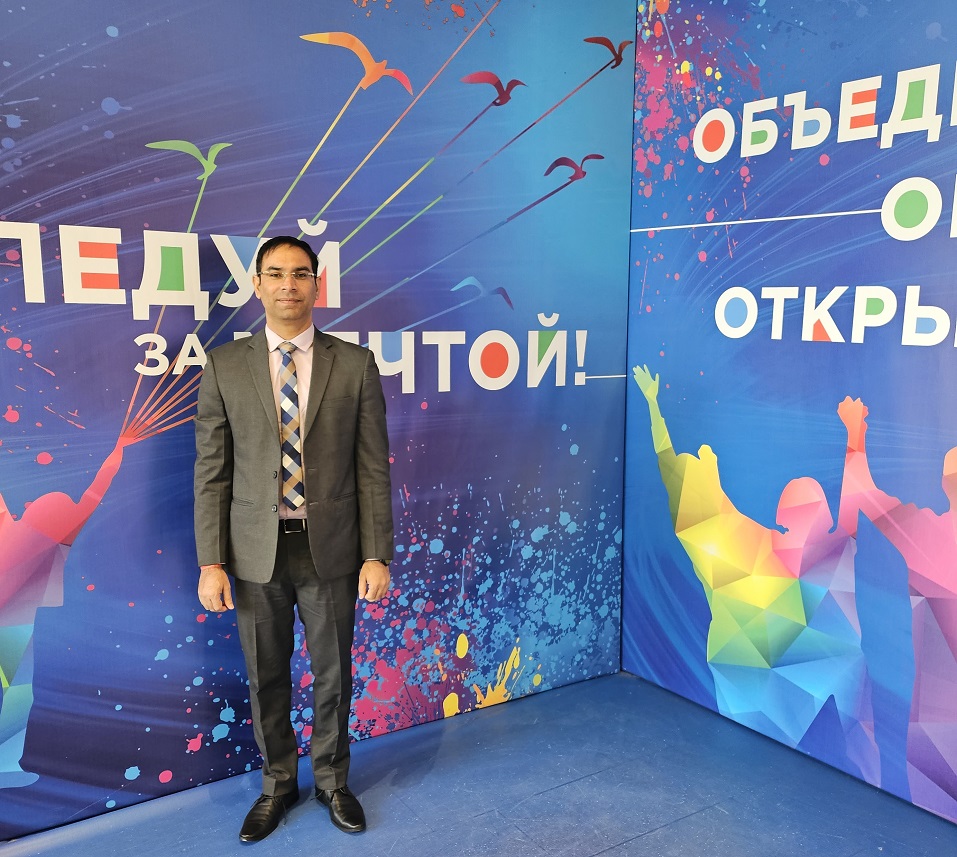RUDN University environmentalists teach to obtain bio-oil from microalgae
October 7, RUDN Institute of Ecology hosted a seminar “From biomass to energy. Valorization of wastewater treatment”* by Dr. Kumar Vinod and Anna Kurbatova — Associate Professor at RUDN Institute of Ecology.
“We have studied a way to produce biofuels from microalgae. These results can be applied to wastewater treatment in the African region and the further use of this treatment products,” Dr. Kumar Vinod, Professor at the Department of Life Sciences at Graphic Era University (India).
About the study
Microalgae biomass is initially grown during polluted wastewater treatment. Hydrothermal liquefaction technology is then applied, converting the microalgae biomass into biofuel. To obtain bio-oil from microalgae, an aqueous suspension (a mixture where the solid substance unsettled particles are distributed in a liquid substance) of biomass is heated to a temperature of about 300 ° C at elevated pressure, which maintains the liquid state of water.
This method of hydrothermal liquefaction provides high energy efficiency and allows using wet microalgae, immediately after the cultivator. The entire algae biomass (lipids, proteins and carbohydrates) is processed at once, which leads to increased bio-oil volume. The most important thing is that the resulting biofuel is as good as conventional oil.
At the event, professors and students:
- shared experience and knowledge in the field of clean water and sanitation;
- learned where biotechnology for water purification with microalgae can be used in Africa and how much water can be purified in this way;
- expanded networks of contacts and partnerships in the field of ecology.
“The results of this research have already encouraged us to develop several new environmental projects. I believe that the use of microalgae for water purification will be an effective solution for Nigeria, my motherland, which suffers from a lack of clean drinking water,” Niambe Obed Kohol, a second-year master’s student at RUDN Institute of Ecology.
On the agenda:
Sustainable Development Goal 6.1: “By 2030, achieve universal and equitable access to safe and affordable drinking water for all”.
To progress towards the goal, the SDG indicator tracks the proportion of the population that has access to safe drinking water. The seminar demonstrated how these indicators can be achieved by treating wastewater with microalgae and valorizing microalgae biomass into biofuels. Moreover, warm climate areas are favorable for microalgae cultivation. The speaker focused on the process of growing microalgae for countries in the African region.
SDG 6.3: “By 2030, improve water quality by reducing pollution, eliminating dumping and minimizing releases of hazardous chemicals and materials, halving the proportion of untreated wastewater, and substantially increasing wastewater recycling and safe reuse globally”.
To progress towards the goal, the SDG indicator tracks the proportion of total industrial and domestic wastewater streams that are safely treated. It is the safe biotechnological treatment of municipal wastewater in the African region that is emphasized in this workshop.
You can learn more about SDG 6 “Clean water and sanitation” at the II International Scientific Conference of Students and Young Scientists “For the sustainable development of civilization: cooperation, science, education, technology (Africa’s Path to 17 SDGs: an integrated approach)”, held in RUDN University, November
* Seminar “From biomass to energy. Valorization of wastewater treatment. SDG 6 “Clean water and sanitation” became a satellite event of the II RUDN conference, dedicated to all sustainable development goals, and took place on October 7, 2023, at RUDN Institute of Ecology.
The seminar was held in English according to RUDN multilingual development program.
Products derived from microalgae represent a cutting-edge development in the field of bioeconomy. The potential of this biological resource was discussed at the international research seminar “Foundations for a Green Sustainable Energy”, part of the BRICS Network University’s thematic group on “Energy”. The event was organized by the Institute of Ecology at RUDN University.
Ambassadors of Russian education and science met at a conference in RUDN University to discuss how they can increase the visibility of Russian universities and research organizations in the world, and attract more international students in Russia.
The international scientific seminar hosted by RUDN Institute of Ecology “Experience of participation in student organizations as a way to form career skills” united scholarship recipients of the International Student Mobility Awards 2024 and Open Doors, along with members of the scientific student society “GreenLab” and the professional student association “Kostyor (Bonfire)” shared their projects focused on environmental protection.
